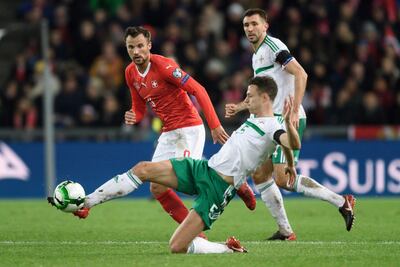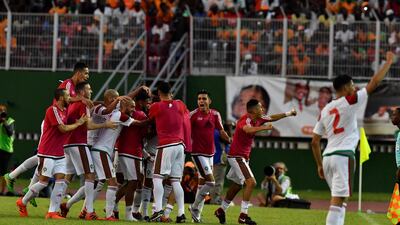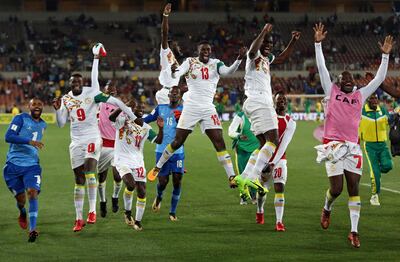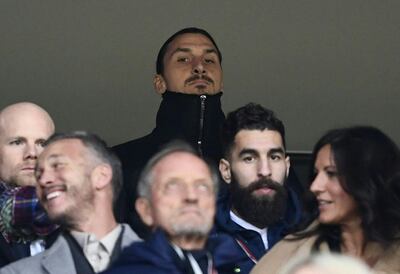North Africa boost 2026 bid
There is a straightforward World Cup to be won in 2018 – the one on the pitches of Russia. Then there is the lobbying campaign for hosting rights to 2026, which will move up through the gears over the next year. It would be encouraging to imagine the two things might be vaguely related, at least as far as the Middle East and North Africa is concerned.
In contention for 2026 are the combined USA-Mexico-Canada bid – with the US the dominant partner - and Morocco. The strong word among Fifa’s decision-makers is that the African candidate is at this stage a distant outsider. But, unlike the US, who failed to qualify (as did Canada, as usual), Morocco at least have a good enough team for a World Cup.
And the North African region is putting forward its best impression as strong football territory. Egypt were at the weekend joined at the World Cup finals by a Morocco who, poised and incisive, defeated Ivory Coast in Abidjan, and Tunisia, who have smoothly commanded their qualifying group. So three out of five of Africa’s places taken are Mena nations, with Morocco and Egypt preparing for their first finals this century.
Eriksen in a hurry
Christian Eriksen was the youngest player to participate at the 2010 World, aged just 18. His two second-half substitute appearances for Denmark back then have remained a scant, unfulfilling body of work at football’s greatest show for a player now on the cusp of superstardom.
Eriksen’s nation failed to reach Brazil 2014, suffered heartbreak via playoffs at the threshold of the last European championship, but will now steam towards Russia with their key man in an obvious hurry to sample a World Cup at the peak of his powers. Eriksen’s hat-trick in the 5-1 demolition of Ireland on Tuesday means he has now scored 10 times in his last nine qualifying matches.
Negative knockouts

Let’s hope the playoffs, which whittled down eight European contenders to four, set Oceania’s best against South America’s fifth-best and pitted Australia against Honduras aren’t too much of an indication of what to expect come the knockout round in Russia. Every single one of those six playoffs featured a goalless 90 minutes, with 0-0 draws in Switzerland, Denmark, Honduras, Peru, Greece and Italy.
These were parts of two-legged ties, many of them inhibited by negative away-goals-rule strategizing. But they also indicated a common World Cup truth: when the stakes are so high, caution rules. At the last World Cup – one of the more exciting and enterprising of recent times – there were three 0-0 draws after 90 minutes at the last-16 stage. Prepare for some extra-time, and penalty shoot-outs in Russia.
Senegal Seoul-searching
A few poor refereeing decisions will live long in the memory from this World Cup qualifying campaign, none more so than the penalty awarded to Switzerland against Northern Ireland, which led to the only goal of that play-off. Senegal were hard done by, too, when they played South Africa in qualifying last year. But the referee in that fixture was later banned by Fifa and the qualifier replayed on Friday. Senegal won it, securing their place at the finals.
That was a relief for manager Aliou Cisse, a Senegal player when they shocked France, 1-0, in the opening match in Seoul at the 2002 World Cup, the West African country’s debut at a finals. The slick Senegalese went on to reach the quarter-finals. With the pace of Liverpool’s Sadio Mane and Monaco’s Keita Balde up front, and Napoli’s Kalidou Koulibaly marshalling the defence, Cisse can glimpse the potential to emulate his generation. “What we have to do is to go from being a good team to a great one,” he says.
Zlatan Ibra-Who?
It was inevitable. But the idea was put to Sweden’s manager, Janne Andersson, with too much haste, he reckoned. Barely had his Swedes achieved the biggest giant-killing of the play-offs by eliminating Italy, who will miss their first World Cup for 60 years, than Andersson was asked whether the country’s most celebrated footballer, the giant Zlatan Ibrahimovic, might come out of international retirement for Russia.
“We need to talk about the players who have got us here,” barked Andersson. “He retired a year and a half ago.” All true. But this bandwagon will roll on, especially once Ibrahimovic, 36, returns to action after his long injury lay-off with the Manchester United who, like Sweden, had thought his days with them were over. They then changed their minds.





